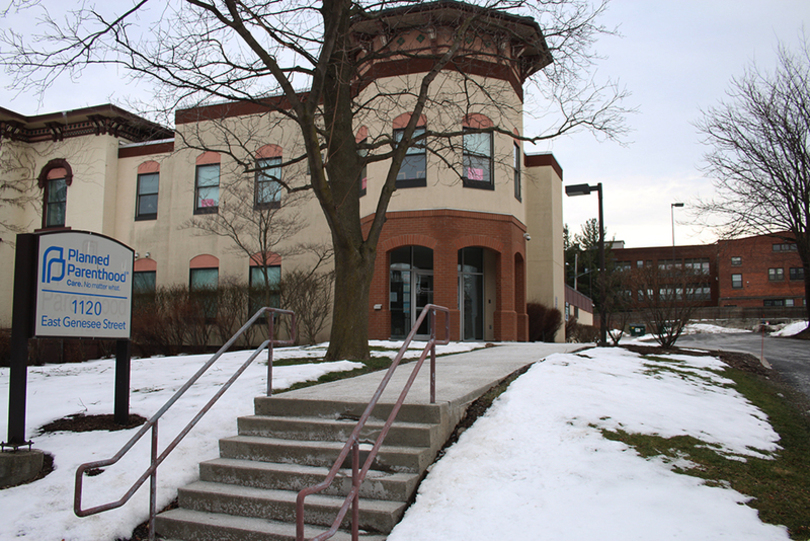LeMoyne professor leads discussion on framing, changing policies of abortion

Eddie Natal | Contributing Photographer
LeMoyne College political science Professor Jonathan Parent touched on the current pressing issues that abortion rights and policies face in a lecture at the State University of New York Upstate Medical University on Friday. Planned Parenthood in Syracuse is located on East Genesee Street.
Medical and moral standpoints on abortion were the central topics raised in a lecture led by a LeMoyne College political science professor on Friday.
In a classroom at the State University of New York Upstate Medical University, Jonathan Parent — who has worked in the political science department at LeMoyne for the past two years — touched on the current pressing issues that abortion rights and policies face. About 25 students and faculty members attended the lecture.
Parent said both pro-life and pro-choice supporters have framed the abortion to influence on the public opinion and policymakers. For example, he said pro-choice activists claim not aborting a pregnancy can pose a threat to the woman or both the woman and fetus from a medical standpoint. Pro-life advocates, meanwhile, argue from moral perspective that life begins at the moment of conception, he said.
“We understand abortion today through the lens of the frames that we understand, that have come to prominence now. But that hasn’t always been the case,” Parent said. “Abortion has gone through a number of different changes in how it’s been understood and presented to the public.”
From both medical and moral standpoints, Parent said the question to consider is whose rights are worth protecting: women’s or fetuses’. These standpoints are used by both sides to legally influence abortion in the United States, he said.
“Government officials will frame issues in terms that are important to their constituents. They’ll say things like fiscal responsibility, that’s a frame, right,” he said. “That’s a way of saying not spending money. Due process or equal protection are ways to frame other issues.”
Despite the highly politicized issue, he said abortion first emerged as a political issue in the 1960s. Abortion has become a highly polarizing issue leading up to and after the Roe vs. Wade ruling in 1973.
During a Q&A session, Emily Kellogg, a fourth-year student at SUNY Upstate Medical University, pointed out a lack of education on abortion in the medical field.
“That’s also a huge issue in terms of student needs, or having this be an area that students might want to pursue,” Kellogg said.
Kellogg, who is on an obstetrics and gynecology track, said in an interview after the session that she recently surveyed 73 third- and fourth-year medical students about their knowledge on abortion procedures.
The majority of the students said they were only given a class in their first year about contraception, Kellogg said.
Macy VanArnam, a fourth-year medical student, added that even though SUNY Upstate has a program that allows residents to learn abortion procedures for women in their first and second trimesters, student don’t receive in-depth training procedures for abortion.
Parent said in an interview after the lecture that he remains hopeful about the future of abortion policies, noting that the discussions over the last 50 years about the topic have evolved the public perception more than they have over the previous thousands of years.




